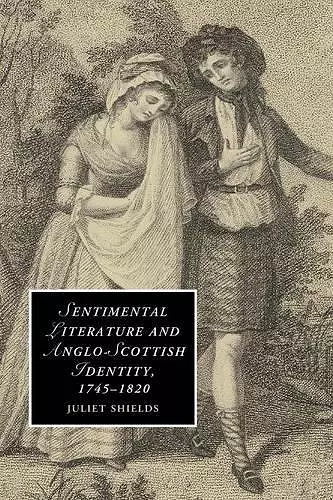Sentimental Literature and Anglo-Scottish Identity, 1745–1820
Format:Paperback
Publisher:Cambridge University Press
Published:21st May '15
Currently unavailable, and unfortunately no date known when it will be back
This paperback is available in another edition too:
- Hardback£90.00(9780521190947)

This book examines the literary negotiation of Anglo-Scottish relations in the century following the 1707 Union between Scotland's and England's parliaments.
What did it mean to be British, and more specifically to feel British, in the century following the parliamentary union of Scotland and England? Juliet Shields departs from recent accounts of the Romantic emergence of nationalism by recovering the terms in which eighteenth- and early nineteenth-century writers understood nationhood. She argues that in the wake of the turmoil surrounding the Union, Scottish writers appealed to sentiment, or refined feeling, to imagine the nation as a community. They sought to transform a Great Britain united by political and economic interests into one united by shared sympathies, even while they used the gendered and racial connotations of sentiment to differentiate sharply between Scottish, English, and British identities. By moving Scotland from the margins to the center of literary history, the book explores how sentiment shaped both the development of British identity and the literature within which writers responded creatively to the idea of nationhood.
'… ambitious and readable … It offers a salutary reminder of the importance of the philosophy of feeling to histories other than philosophy's, and feeling's, own - not least, to the conceptual forms of national history.' Miranda Burgess, Studies in Romanticism
ISBN: 9781107449145
Dimensions: 229mm x 151mm x 13mm
Weight: 350g
240 pages